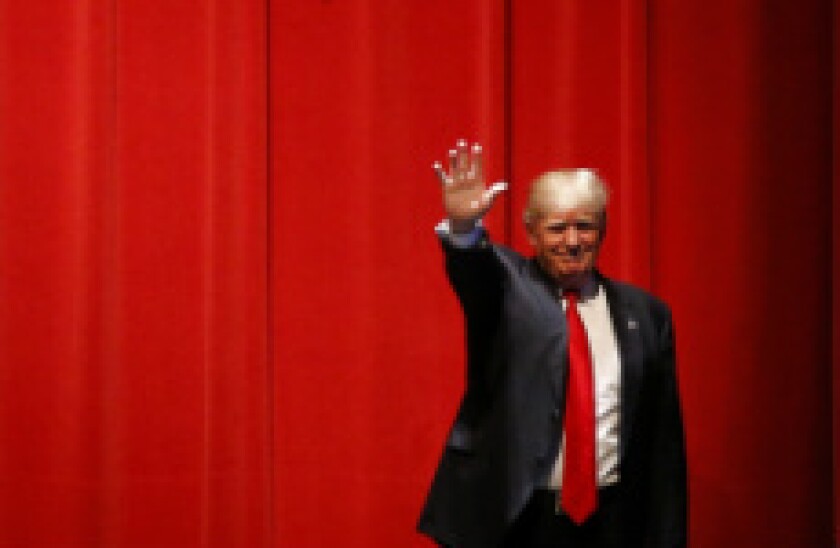At noon today, Hong Kong time, the US imposed 25% tariffs on $34bn of Chinese goods .
Chin a responded by applying equally sized tariffs on US goods at 12:01pm , state news agency Xinhua reported later in the afternoon. At 12:05pm , the Ministry of Commerce (MofCom) released a short statement accusing Washington of putting the recovery of the global economy at risk.
“The US has broken the rules of the World Trade Organization (WTO), and started the largest trade war in economic history,” a MofCom spokesperson said in the statement. “This is typical trade hegemony.”
Beijing will report the US to the WTO and defend free trade and multilateralism with other countries, according to the statement. MofCom stressed that China will continue to reform and open up, and support companies that are affected by the tariffs.
On Thursday, US president Donald Trump told media on Air Force One that he could target another $16bn of Chinese goods with even higher tariffs in two weeks, adding another $200bn after that, and another $300bn thereafter, if Beijing does not comply with the US demands. The White House has accused Beijing of taking US technologies and through that, threatened US national security.
A day before the tariffs came into force, Guo Shuqing, party chief at the People’s Bank of China, reassured market participants that China will not give up reform of financial services because of trade conflicts.
“The financial sector will continue to deepen reform and further open up, we will improve corporate governance and institutions’ structures, regulate the markets and continuously improve the ability [of finance] to serve the real economy,” he told Financial News, the PBoC’s newspaper.
Guo, who is also the chairman of the China Banking and Insurance Regulatory Commission, argued that international investors have shown confidence in the Chinese financial markets, noting that there have been net inflows of Rmb131.3bn ($17.8bn) and Rmb308.9bn into onshore equities and government bonds, respectively, in the first half of the year.
The party chief was not the only central bank official who delivered a message of reassurance to the market this week. Yi Gang, the PBoC’s governor, also spoke to media on July 3 amid fluctuations in the RMB exchange rate.
“The fundamentals of the Chinese economy are good, and our financial risk is under control,” he said. “We will continue to adhere to a neutral monetary policy, deepen the market-oriented exchange rate reform, rely on our experience and an abundant variety of policy tools to adjust macro and micro prudential policies. We will keep the RMB exchange rate stable and on a reasonable level.”
Pan Gongsheng, PBoC’s deputy governor, said China will allow block trade on Bond Connect from mid-July, according to a July 3 statement by the Hong Kong Exchanges and Clearing (HKEX).
Bond Connect investors will also enjoy the launch of delivery-versus-payment settlement and clarity on tax policy soon, said Pan. The central bank also intends to allow international investors to access the onshore repo and derivatives markets and discount up to 50% of transaction fees, he added .
H e was speaking at an event hosted by HKEX on Tuesday to mark the first anniversary of Bond Connect. The link currently only offers northbound trading .
O n another note, Pan told the event the central bank will issue new guidelines for Panda issuers, which will make it easier for them to use the proceeds offshore, according to a July 3 media report.
Pan was also quoted by Chinese media as saying that, under the new rules, Panda issuance by financial institutions will be regulated by the PBoC, and non-financial borrowers and sovereigns will come under the supervision of the National Association of Financial Market Institutional Investors (Nafmii). Issuers will only need to register with regulators once, before issuing multiple times.

